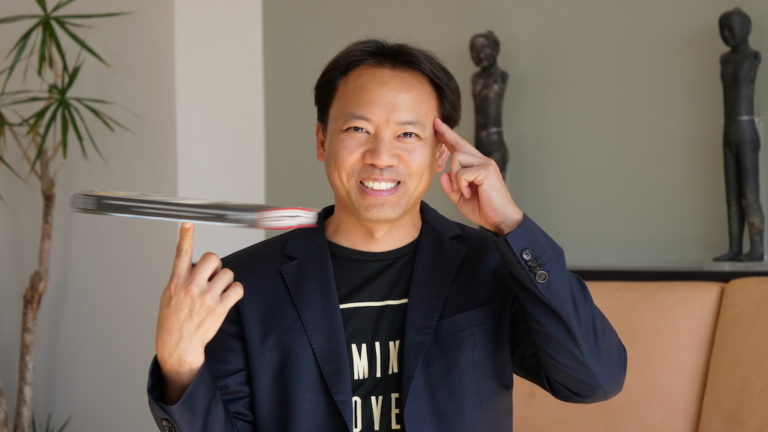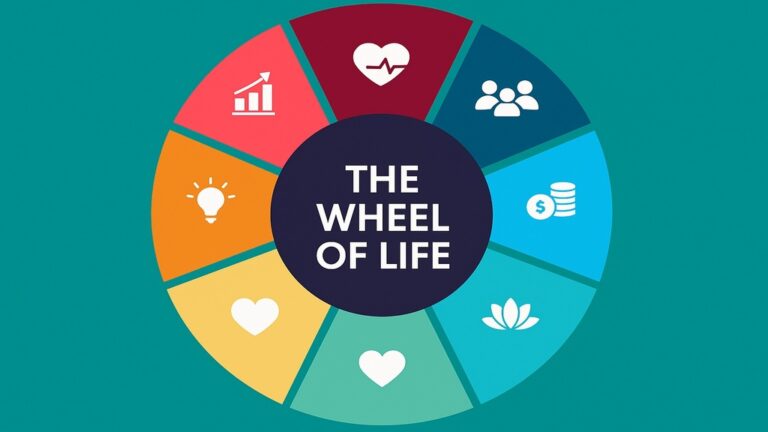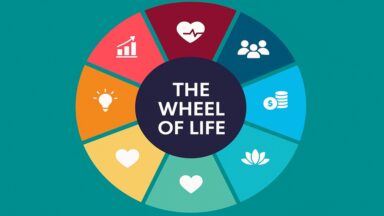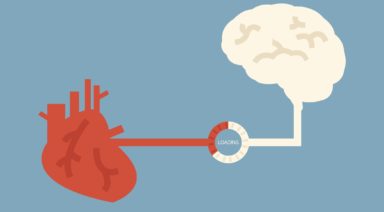How ‘The Boy with the Broken Brain’ Became A World Leader in Learning

After an incident in kindergarten, Jim Kwik had countless learning difficulties that led him to being labeled “the boy with the broken brain.” This label left a long-lasting imprint on his self-worth, his identity, and beliefs in himself. Learning became his greatest mountain that he saw as an impossible climb.
Having made it into university after years of struggle, Jim found himself at the same place he’d always been – incapable of scholarly success. Ready to succumb to the doubts within himself, Jim planned to quit school.
It was in this time that Jim met someone who challenged the way he perceived his potential and changed his life forever. Firstly, he asked Jim to write down his aspirations on a piece of paper pulled from a journal that he had in his pocket. He then gave Jim the task to read one book per week about any great man or woman throughout history, plus personal development books – all while he was still completing his university. With the fear of failure taking over, Jim said, “I can’t do it.” This man immediately took the folded piece of paper from Jim’s hands and read his goals aloud.
“Something about hearing your dreams come from a stranger’s voice… it shook my heart, it shook my spirit, my soul, something fierce” – those goals became the motivation he needed to push himself and to finally believe in himself.
Today, Jim uses his experience of shattering those limiting beliefs to help others break through similar barriers and get their brains to reach their full potential. He shares more on his coaching and the impact it has had in Episode 3, along with other incredible stories from experts like Jon Gabriel, Dr. Libby Weaver, Marie Forleo, Vishen Lakhiani, Bruce Lipton, and more!
What belief do you have about yourself that’s holding you back? Are you ready to break through that belief and make the impossible, possible?
The Wheel of Life: What It Is, What It’s For, and How To Use It

The Wheel of Life is a visual tool used in coaching to assess balance across different areas of a person’s life. It helps identify areas that need more attention and to set goals for improving satisfaction in each aspect. In this article, we explore what the Wheel of Life is, how to create your own, and how to use it to achieve greater well-being.
Table of Contents
- What Is the Wheel of Life?
- How To Create Your Own Wheel of Life
- The 8 Components of the Wheel of Life
- What to Do With the Results of the Wheel of Life
- History and Origin of the Wheel of Life
What Is the Wheel of Life?
The Wheel of Life is a circular diagram divided into several sections, each representing a key area of life, such as health, relationships, career, and leisure. This tool allows people to clearly and simply visualize the current state of their life in these areas, offering a holistic view of their well-being. By evaluating and rating each area on a scale from 1 to 10, it creates a visual representation of balance—or imbalance—in one’s life.
The process of using the Wheel of Life involves reflecting on each area and assigning a score that reflects your current level of satisfaction. The scores are connected to form a figure resembling a wheel, where its symmetry indicates the degree of balance in life. An unbalanced wheel with peaks and valleys suggests areas that require more attention and development.
How To Create Your Own Wheel of Life
Creating your own Wheel of Life is a simple and effective process to evaluate and improve different aspects of your life. Follow these steps to build yours:
- Represent the areas in a circle: Draw a circle and divide it into equal sections, each representing an important area of your life. Imagine it like a birthday cake sliced into equal parts. Ideally, you should include eight areas of the Wheel of Life, but you can adjust based on what you consider meaningful.
- Identify the key areas: Determine the specific areas you want to assess, such as health, relationships, career, personal development, finances, leisure, family, and friends. These areas should reflect significant aspects of your life that influence your overall well-being. Be sure to include both personal and professional dimensions.
- Rate each area: Evaluate your current level of satisfaction in each area on a scale from 1 to 10, where 1 means total dissatisfaction and 10 represents maximum satisfaction. Be honest with yourself when assigning these scores. This step is crucial to identify which areas need more attention.
- Connect the dots: Link the scores in each area to form a figure within the circle. This shape may look like a balanced wheel or an irregular form with peaks and valleys. The consistency of this figure reflects the level of balance in your life.
- Interpret the results: Analyze the resulting shape to identify the unbalanced areas that require more attention. Ask yourself which areas are causing greater imbalance and how you might improve your satisfaction in them. Use the results to set goals and create an action plan.

The 8 Components of the Wheel of Life
Below are the eight key areas that make up the Wheel of Life. Each represents a different aspect that influences your overall well‑being. These categories help you see, at a glance, how you feel in each area. You can adjust them based on your current priorities. The essential thing is that they reflect what truly matters to you.
-
Personal Development
This area focuses on growth and continuous improvement in all aspects of your life. It includes learning new skills, expanding your knowledge, and working on personal qualities. Reflecting on personal development allows you to identify areas to improve and set clear growth goals.
Ask yourself: Am I dedicating enough time to my learning and growth? What new skills would I like to acquire? How can I improve my daily habits to boost personal development? What training or reading activities can I incorporate into my routine? Am I setting achievable development goals? How can I measure my progress?
-
Home Environment
Home represents the physical and emotional environment in which you live. A balanced and harmonious home greatly contributes to your overall well‑being. Evaluating this area involves considering not only the physical space but also the relationships and family dynamics that affect your quality of life.
Ask yourself: Do I feel comfortable and safe at home? Are home relationships healthy and supportive? What changes can I make in my environment to improve my well‑being? Am I dedicating enough time to organizing and cleaning my space? How can I improve living together with household members? Which aspects of my home’s physical and emotional environment need more attention?
-
Health
Evaluating your health means considering multiple aspects such as diet, exercise, rest, and stress management. Reflecting on these factors helps you identify patterns that need adjustment to improve overall well‑being. A proactive approach to your physical and mental health is crucial for maintaining a balanced, fulfilling lifestyle.
Ask yourself: Am I taking proper care of my body and mind? Do I have healthy eating and exercise habits? How do I manage stress and nurture my emotional well‑being? Am I sleeping enough and in a restorative way? Do I need to adjust my exercise routine? How can I improve my diet to feel better physically and mentally?
-
Work and Career
Reflecting on your professional life allows you to assess not only your career satisfaction but also the balance between work and personal life. It’s fundamental to consider growth and development opportunities in your current role. Finding work that you’re passionate about and that offers harmony with other areas of your life can significantly improve your overall well‑being.
Ask yourself: Am I satisfied with my current job? Do I have opportunities for professional growth and development? How can I improve the balance between my work and personal life? Am I achieving an adequate balance between work time and rest? What aspects of my job bring me the most satisfaction? How can I better manage work-related stress?
-
Friends
Authentic, high-quality friendships are essential for emotional well-being. Evaluating your friendships can help you discover the depth and authenticity of these connections. It’s important to invest time and effort into maintaining and strengthening these relationships to ensure they provide the support and companionship you need.
To go deeper in this reflection, consider: Do I have friends I can fully trust? How often do I spend quality time with my friends? Do my friendships uplift me or drain me? Am I dedicating enough time to maintaining and nurturing these relationships? How can I improve communication and connection with my friends? Am I open to making new friends if needed?
-
Love
In the Wheel of Life, love refers to romantic relationships and the quality of these intimate interactions. Evaluating this area involves considering aspects such as communication, emotional connection, and overall satisfaction in the relationship. A healthy, loving partnership can be a major source of emotional support and well-being.
To explore this area, ask yourself: Do I feel loved and valued by my partner? Do we communicate openly and honestly? What can I do to strengthen our emotional connection? Am I satisfied with the level of support and understanding in our relationship? How can I contribute to making our relationship stronger? Are there any conflicts we need to resolve together?
-
Finances
Evaluating your financial situation allows you to analyze your spending habits, your saving capacity, and your future planning. Reflecting on these elements will help you identify areas that need adjustment to improve financial stability. Good personal finance management is key to peace of mind and quality of life.
Reflect on your finances with questions like: Am I satisfied with my current income? Am I saving and investing adequately for the future? Are my spending habits aligned with my priorities and values? What changes do I need to make to improve my financial stability? Am I managing my debts and financial commitments effectively?
-
Leisure and Hobbies
Spending time on hobbies and leisure activities is essential for maintaining a healthy balance. Evaluating this area helps you consider whether you are investing enough time in activities that relax and entertain you. Adding more recreational time to your routine can boost your well-being and personal satisfaction.
To assess this area, ask yourself: Do I regularly make time for my hobbies and leisure activities? Do these activities bring me joy and satisfaction? Am I exploring new activities that interest me? What can I do to ensure I have quality free time each week? How can I integrate more recreational activities into my daily life? Am I prioritizing time for myself amid my daily responsibilities?
What to Do With the Results of the Wheel of Life
Once you’ve completed and assessed your Wheel of Life, the next step is to use the results to set goals and create an action plan. Analyze the areas with lower scores and reflect on why these areas are out of balance. Identifying the reasons behind dissatisfaction in these aspects will help you determine specific actions you need to take to improve.
After identifying which areas need attention, it’s crucial to set clear and achievable goals for each one. Break these goals into smaller, manageable objectives you can work on progressively. This will allow you to track your progress and stay motivated over time. Make sure your goals are SMART: Specific, Measurable, Achievable, Relevant, and Time-bound.
History and Origin of the Wheel of Life
The Wheel of Life was created by Paul J. Meyer, a pioneer in the field of personal and professional development and founder of the Success Motivation Institute. Meyer developed this tool in the 1960s as part of his coaching programs, with the goal of helping people assess and improve different aspects of their lives in an integrated way.
Since its creation, the Wheel of Life has been adopted by coaches and therapists around the world due to its simplicity and effectiveness. Its intuitive design facilitates reflection and self-assessment, enabling individuals to quickly identify areas that need attention and growth. Over time, this tool has become a staple in coaching programs, personal development workshops, and therapy sessions, proving its versatility and long-term value.






































